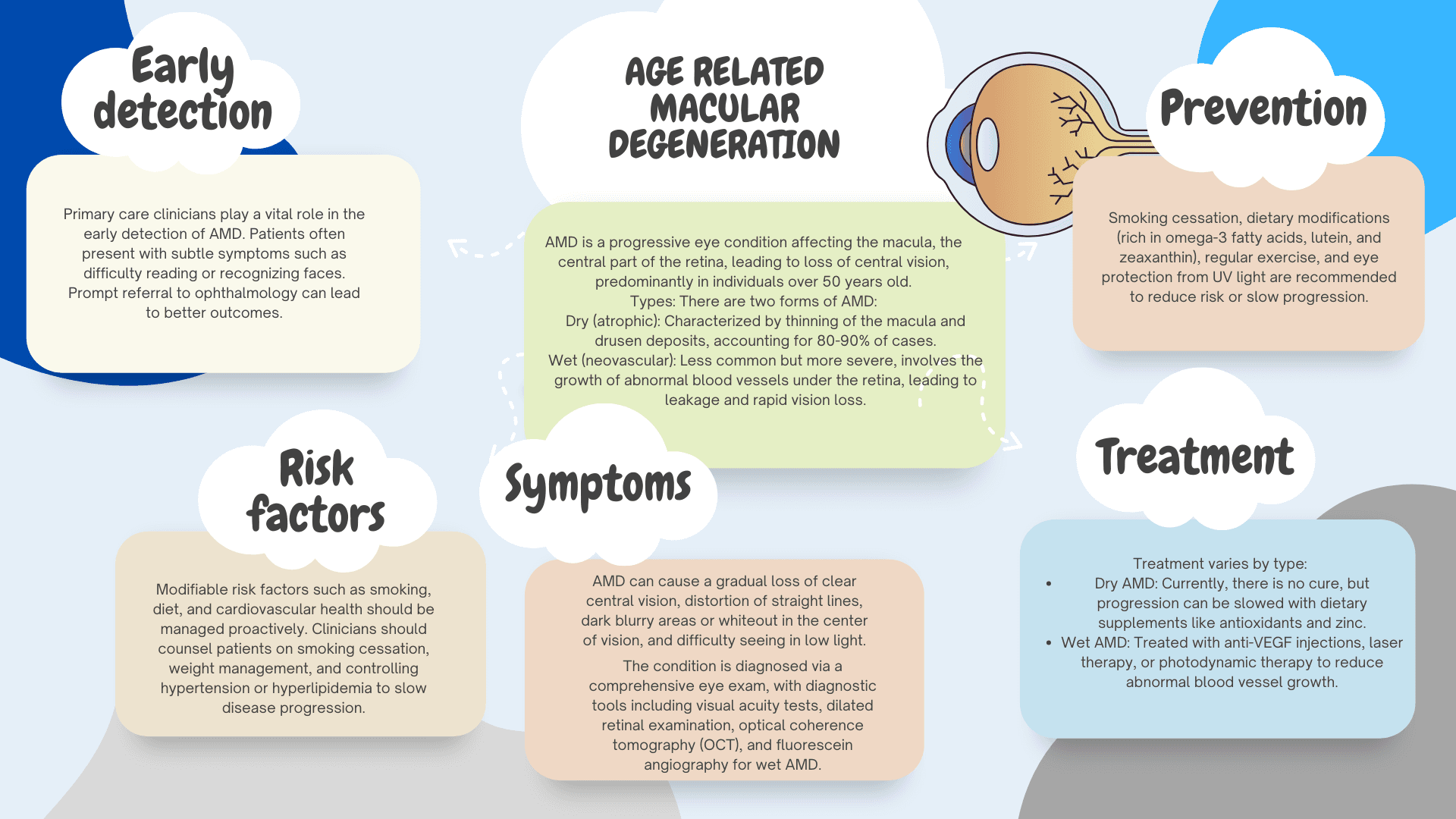Download A4Medicine Mobile App
Empower Your RCGP AKT Journey: Master the MCQs with Us!

Age-related Macular Degeneration (AMD) is a leading cause of irreversible visual impairment and blindness among the elderly in developed countries. As a primary care clinician, you play a pivotal role in the early identification and management of this condition. Your vigilance can significantly influence the course of AMD, impacting patients' quality of life.
The disease typically affects individuals over the age of 60 and is characterized by the deterioration of the central portion of the retina, known as the macula, which is responsible for high-resolution vision necessary for activities like reading and driving. AMD manifests in two primary forms: Dry (atrophic) and Wet (neovascular or exudative). The majority of AMD cases are the Dry type, which progresses slowly and subtly, whereas the Wet type, although less common, leads to more rapid and severe vision loss.
As a general practitioner, understanding the risk factors, such as age, smoking, hypertension, and family history, is key to identifying susceptible individuals. Lifestyle modifications and antioxidant supplementation may have a role in slowing progression in early stages of the disease. Moreover, advising patients on self-monitoring techniques, like the use of the Amsler grid, can lead to earlier detection of vision changes and prompt referral to...
Try our Free Plan to get the full article.